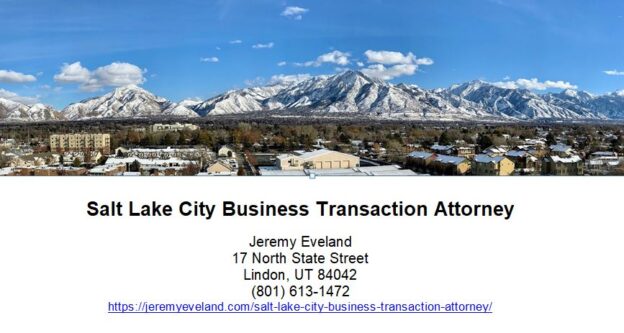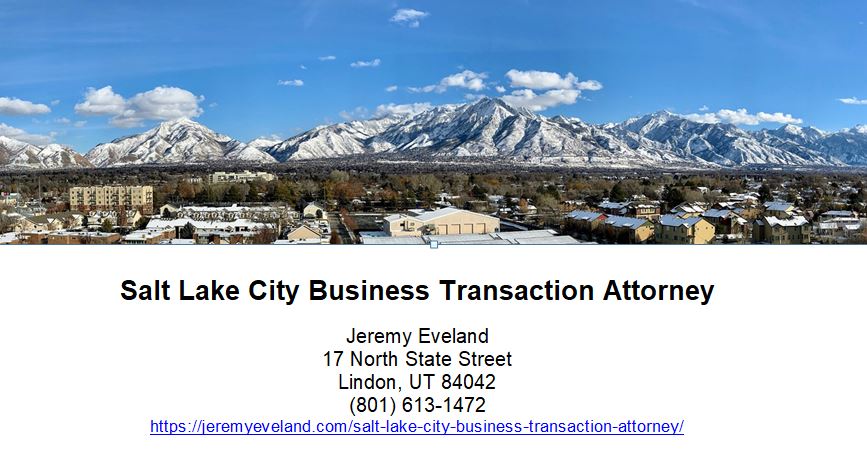Contract Law for Businesses
-
Business Contract Attorneys
- Introduction
- What to Consider When Negotiating Business Contracts
- Understanding the Elements of a Valid Business Contract
- What to Do When a Breach of Contract Occurs
- How to Draft a Legally Binding Business Contract
- What Businesses Need to Know About Contract Law
- Remedies For Breach of Contract
- Why You Need a Business Contract Lawyer
- Q&A
“Secure Your Business with Contract Law: Protect Your Assets and Your Future.”
Introduction
Contract law is an essential part of doing business. It is the legal framework that governs the formation, performance, and enforcement of contracts between two or more parties. It is important for businesses to understand the basics of contract law in order to protect their interests and ensure that their contracts are legally binding. This introduction will provide an overview of the basics of contract law and how it applies to businesses.
What to Consider When Negotiating Business Contracts
When negotiating business contracts, there are several important considerations to keep in mind.
First, it is important to understand the terms of the contract and to ensure that all parties involved are in agreement. This includes understanding the scope of the agreement, the duration of the contract, and any potential liabilities or obligations. It is also important to ensure that all parties are aware of any applicable laws or regulations that may affect the contract.
Second, it is important to consider the financial implications of the contract. This includes understanding the cost of the contract, any potential fees or penalties, and any potential tax implications. It is also important to consider any potential risks associated with the contract, such as the potential for litigation or other disputes.
Third, it is important to consider the potential for future changes to the contract. This includes understanding the potential for changes in the scope of the agreement, the duration of the contract, or any other terms. It is also important to consider the potential for changes in the financial implications of the contract, such as changes in fees or penalties.
Finally, it is important to consider the potential for dispute resolution. This includes understanding the potential for mediation or arbitration, as well as any potential for litigation. It is also important to consider the potential for any other dispute resolution mechanisms, such as negotiation or alternative dispute resolution.
By considering these important considerations, parties can ensure that their business contracts are fair and equitable for all parties involved.
Understanding the Elements of a Valid Business Contract
A valid business contract is a legally binding agreement between two or more parties that outlines the terms and conditions of a particular transaction. It is important to understand the elements of a valid business contract in order to ensure that all parties involved are protected and that the agreement is enforceable.
The first element of a valid business contract is an offer. This is an expression of willingness to enter into a contract, and it must be clear and definite. The offer must also be communicated to the other party in order for it to be valid.
The second element of a valid business contract is acceptance. This is the other party’s agreement to the terms of the offer. Acceptance must be communicated to the other party in order for it to be valid.
The third element of a valid business contract is consideration. This is something of value that is exchanged between the parties in order to make the contract binding. Consideration can be money, goods, services, or a promise to do something.
The fourth element of a valid business contract is capacity. This means that both parties must be legally able to enter into a contract. This means that they must be of legal age and of sound mind.
The fifth element of a valid business contract is legality. This means that the contract must not be for an illegal purpose or involve illegal activities.
Finally, the sixth element of a valid business contract is a written document. This document should include all of the elements of the contract, including the offer, acceptance, consideration, capacity, and legality. It should also include the signatures of both parties in order to make it legally binding.
Understanding the elements of a valid business contract is essential for any business transaction. It is important to ensure that all parties involved are protected and that the agreement is enforceable. By understanding the elements of a valid business contract, businesses can ensure that their transactions are conducted in a legally sound manner.
What to Do When a Breach of Contract Occurs
When a breach of contract occurs, it is important to take immediate action to protect your rights and interests. Here are some steps to take when a breach of contract occurs:
1. Document the Breach: Document the breach of contract in detail, including the date, time, and circumstances of the breach. Make sure to keep copies of all relevant documents, such as emails, contracts, and other correspondence.
2. Notify the Other Party: Notify the other party of the breach of contract in writing. This should include a detailed description of the breach and the remedies you are seeking.
3. Seek Legal Advice: Consult with an experienced attorney to discuss your legal options. An attorney can help you understand your rights and obligations under the contract and advise you on the best course of action.
4. Negotiate a Resolution: If possible, try to negotiate a resolution with the other party. This may involve offering a compromise or agreeing to a payment plan.
5. File a Lawsuit: If negotiations fail, you may need to file a lawsuit to enforce the contract. This should be done with the help of an experienced attorney.
By taking these steps, you can protect your rights and interests when a breach of contract occurs.
How to Draft a Legally Binding Business Contract
Drafting a legally binding business contract is an important step in any business relationship. It is essential to ensure that all parties involved understand their rights and obligations under the contract. Here are some tips for drafting a legally binding business contract:
1. Identify the parties involved: The contract should clearly identify the parties involved in the agreement. This includes the names and contact information of all parties, as well as any other relevant information such as the business address and registration number.
2. Specify the purpose of the contract: The contract should clearly state the purpose of the agreement. This should include a description of the services or goods to be provided, the payment terms, and any other relevant details.
3. Include all relevant details: The contract should include all relevant details such as the duration of the agreement, the payment terms, and any other relevant information.
4. Include a dispute resolution clause: A dispute resolution clause should be included in the contract to provide a mechanism for resolving any disputes that may arise.
5. Have the contract reviewed by a lawyer: It is important to have the contract reviewed by a lawyer to ensure that it is legally binding and enforceable.
By following these tips, you can ensure that your business contract is legally binding and enforceable. It is important to remember that a contract is only as good as the parties involved in it, so it is essential to ensure that all parties understand their rights and obligations under the contract.
What Businesses Need to Know About Contract Law
Businesses need to be aware of the legal implications of contracts in order to protect their interests and ensure compliance with the law. Contract law is a complex area of law that governs the formation, performance, and enforcement of contracts. It is important for businesses to understand the basics of contract law in order to ensure that their contracts are legally binding and enforceable.
First, businesses should understand the elements of a valid contract. A valid contract requires an offer, acceptance, consideration, and mutual assent. The offer must be clear and definite, and the acceptance must be unequivocal. Consideration is the exchange of something of value between the parties, and mutual assent is an agreement between the parties to be bound by the terms of the contract.
Second, businesses should be aware of the different types of contracts. Common types of contracts include express contracts, implied contracts, and unilateral contracts. Express contracts are written agreements that clearly state the terms of the agreement. Implied contracts are created by the actions of the parties, even if there is no written agreement. Unilateral contracts are created when one party makes an offer and the other party accepts by performing the requested action.
Third, businesses should understand the legal requirements for contract formation. Generally, contracts must be in writing and signed by both parties in order to be legally binding. Additionally, contracts must be supported by consideration, meaning that each party must receive something of value in exchange for their agreement.
Finally, businesses should be aware of the remedies available for breach of contract. If one party fails to perform their obligations under the contract, the other party may be entitled to damages or other remedies. Damages are monetary compensation for losses suffered as a result of the breach, while other remedies may include specific performance or rescission of the contract.
By understanding the basics of contract law, businesses can ensure that their contracts are legally binding and enforceable. This will help to protect their interests and ensure compliance with the law.
Remedies For Breach of Contract
When a contract is breached, the non-breaching party may be entitled to certain remedies. Depending on the circumstances, these remedies may include damages, specific performance, or rescission.
Damages
Damages are a common remedy for breach of contract. The purpose of damages is to put the non-breaching party in the same position they would have been in had the contract been performed. There are two types of damages: compensatory and punitive. Compensatory damages are intended to compensate the non-breaching party for any losses suffered as a result of the breach. Punitive damages are intended to punish the breaching party and deter them from breaching contracts in the future.
Specific Performance
Specific performance is an equitable remedy that requires the breaching party to perform their obligations under the contract. This remedy is typically used when damages are not sufficient to compensate the non-breaching party for their losses.
Rescission
Rescission is an equitable remedy that allows the non-breaching party to cancel the contract and be restored to the position they were in before the contract was formed. This remedy is typically used when the breach is so material that it renders the contract void.
In conclusion, when a contract is breached, the non-breaching party may be entitled to certain remedies, including damages, specific performance, or rescission. The type of remedy available will depend on the circumstances of the breach.
Why You Need a Business Contract Lawyer
Having a business contract lawyer is essential for any business. A business contract lawyer can help protect your business from potential legal issues and ensure that your contracts are legally binding.
A business contract lawyer can help you draft contracts that are tailored to your specific business needs. They can help you understand the legal implications of the contract and ensure that all parties involved are aware of their rights and obligations. They can also help you negotiate the terms of the contract and ensure that all parties are in agreement.
A business contract lawyer can also help you review existing contracts and make sure that they are up to date and legally binding. They can help you identify any potential issues that could arise from the contract and help you resolve them. They can also help you understand the legal implications of any changes you make to the contract.
A business contract lawyer can also help you protect your business from potential legal issues. They can help you understand the legal implications of any disputes that may arise and help you resolve them. They can also help you protect your business from potential lawsuits by ensuring that all parties involved are aware of their rights and obligations.
Having a business contract lawyer is essential for any business. They can help you draft contracts that are tailored to your specific business needs, review existing contracts, and protect your business from potential legal issues. They can also help you understand the legal implications of any disputes that may arise and help you resolve them. Having a business contract lawyer is essential for any business and can help ensure that your contracts are legally binding and protect your business from potential legal issues.
Q&A
1. What is a contract?
A contract is a legally binding agreement between two or more parties that creates an obligation to do or not do something. It is a voluntary agreement between two or more parties that is enforceable by law.
2. What are the essential elements of a contract?
The essential elements of a contract are an offer, acceptance, consideration, and an intention to create a legal relationship.
3. What is the difference between an offer and an invitation to treat?
An offer is a definite promise to be bound by the terms of the agreement if accepted. An invitation to treat is an invitation to make an offer, and is not a promise to be bound by the terms of the agreement.
4. What is consideration?
Consideration is something of value given by one party to another in exchange for a promise or performance. It is an essential element of a contract and must be present for a contract to be legally binding.
5. What is the statute of frauds?
The statute of frauds is a law that requires certain types of contracts to be in writing and signed by the parties in order to be enforceable.
6. What is the difference between a void and a voidable contract?
A void contract is one that is not legally binding and cannot be enforced. A voidable contract is one that is legally binding but can be cancelled or rescinded by one of the parties.
7. What is the difference between a breach of contract and a breach of warranty?
A breach of contract occurs when one party fails to perform their obligations under the contract. A breach of warranty occurs when one party fails to meet the standards of quality or performance promised in the contract.
Contract Law for Businesses Consultation
When you need legal help with Contract Law for Businesses call Jeremy D. Eveland, MBA, JD (801) 613-1472 for a consultation.
Jeremy Eveland
17 North State Street
Lindon UT 84042
(801) 613-1472
Related Posts
Business Succession Lawyer Draper Utah
Business Contract Lawyer Salt Lake City
What Is The Difference Between Corporate And Commercial Law?
Business Contract Lawyer West Valley City
Business Lawyer West Jordan Utah
Irrevocable Life Insurance Trusts
What Is The Purpose Of A Business Attorney?
Business Transaction Lawyer Provo Utah
Trusted Personal Injury Attorneys in Utah






























